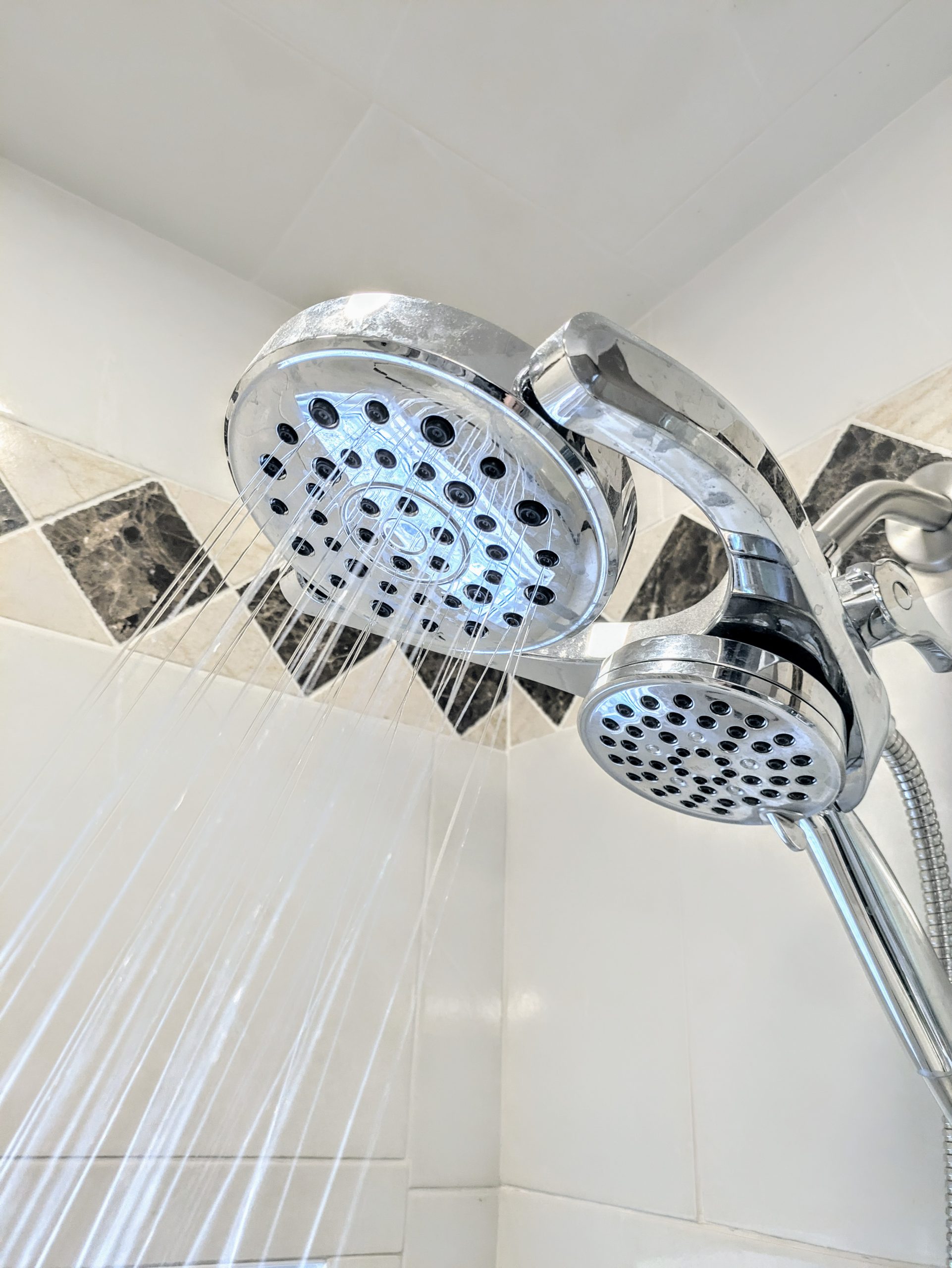Water is crucial for daily activities like drinking, cooking, cleaning, and bathing. But when your water contains high levels of minerals such as calcium and magnesium, you may be dealing with hard water. This can affect not just your home’s plumbing and appliances but also your overall water quality. Below, we explore the signs of hard water in cisterns and homes and offer solutions to help you manage its impact.
Is Your Home Affected by Hard Water?
Detecting hard water in your home or cistern is essential to avoid potential complications.
You can test for hard water with a product like this.
Here’s what to look for:
Persistent Soap Scum and Residue
Hard water spots on glasses
One of the first indications of hard water is soap scum buildup on shower doors, sinks, and utensils. The minerals in hard water prevent soap from lathering properly, leaving a sticky residue that’s tough to clean. This not only leads to more frequent scrubbing but also necessitates stronger cleaning agents, adding to maintenance time and cost.

Solution: Install a whole-house water softening system to reduce mineral content and improve soap performance. For immediate relief, adding a ½ cup of white vinegar to your dishwasher cycle can help cut through the residue and leave dishes sparkling clean.
We recommend contacting your local water supply business for a whole-house water softener system. But if you’re looking for a DIY option, or want to start small, you could always try just a water-softener shower head or a little bit bigger of a system to handle softening your laundry and shower.
Stiff, Faded Laundry
Dull laundry
Do your clothes come out of the wash feeling stiff or looking dull? The minerals in hard water in your home nteract with detergents, making them less effective and causing detergent residue to cling to fabrics. Over time, this leads to faded colors, rougher textures, and more stubborn stains that resist removal.
What colour did these towels even used to be?

Solution: To help soften the hard water in your home coming from your cistern, specifically your laundry, and help your laundry feel softer, add ½ cup of white vinegar to the rinse cycle. Vinegar acts as a natural fabric softener, breaking down mineral buildup on clothes.
Reduced Water Pressure and Clogged Plumbing
Over time, hard water minerals can build up inside pipes, narrowing the water flow and reducing water pressure. This can lead to clogged faucets and showerheads that need constant cleaning to function properly. If the buildup goes unaddressed, it can result in more severe issues, such as pipe corrosion or complete blockages, which can be costly to repair.
Solution: Installing a water softening system can prevent mineral buildup and protect your plumbing. Regular maintenance and descaling of affected fixtures can also help manage buildup.
Scale Buildup on Appliances
Hard water takes a toll on appliances, especially those that use heating elements or handle large volumes of water, like kettles, dishwashers, hot water tanks, and washing machines. The presence of white or yellowish scale deposits on heating elements or around appliance edges is a clear sign of hard water. This buildup can reduce the efficiency of your appliances and shorten their lifespan, potentially leading to expensive replacements.
Hard water can also build up inside your cistern and pipes. Once you’ve determined that you have hard water, the best way to obtain soft water and get rid of your hard water is to get a water softener. Water softeners use ion exchange to replace calcium and magnesium ions with sodium or potassium ions, reducing water hardness. Will a water filtration system reduce your water flow rate?
Solution: Use a water softener to protect appliances from scale buildup. For smaller appliances like kettles and coffee makers, run a cleaning cycle with a solution of water and white vinegar to dissolve existing mineral deposits.
Dry, Itchy Skin
Washing in hard water can cause dry, itchy skin
Hard water can affect more than just household items—it can impact your skin. Bathing or washing with hard water can strip away the natural oils from your skin, causing dryness and irritation. The leftover soap residue from hard water further exacerbates this, making it difficult to maintain hydrated, healthy skin.

Solution: Consider installing a water softener or using moisturizing body washes designed for hard water. Installing a shower filter that reduces mineral content can also help maintain skin health.
What happens to your PTLevel in hard water?
Almost all appliances are affected by hard water in some way, and the PTLevel is no exception. The good news is, there is not too much change! To start, the water readings will not be affected by hard water. The PTLevel is designed to monitor the liquid level of water, chemicals, RO tanks, fertilizer tanks, etc; so having hard water is not a problem. We would just recommend making sure the pressure chamber hole does not get blocked by mineral build up annually. If you see build up starting to form, simply scrubbing it off or soaking the pressure chamber in white vinegar will help. Read more about the maintenance here.





Conclusion: Take Action Against Hard Water
Spotting the signs of hard water in your cistern or home is the first step toward improving your water quality. From dealing with soap scum and clogged pipes to extending the life of your appliances and preserving your skin health, addressing hard water is crucial. If you suspect your home has hard water, consider testing your water supply and exploring solutions like installing a whole-house water softening system or incorporating simple fixes like white vinegar in your cleaning routines. With a proactive approach, you can maintain a cleaner, more efficient home environment and enjoy the benefits of softened water.

